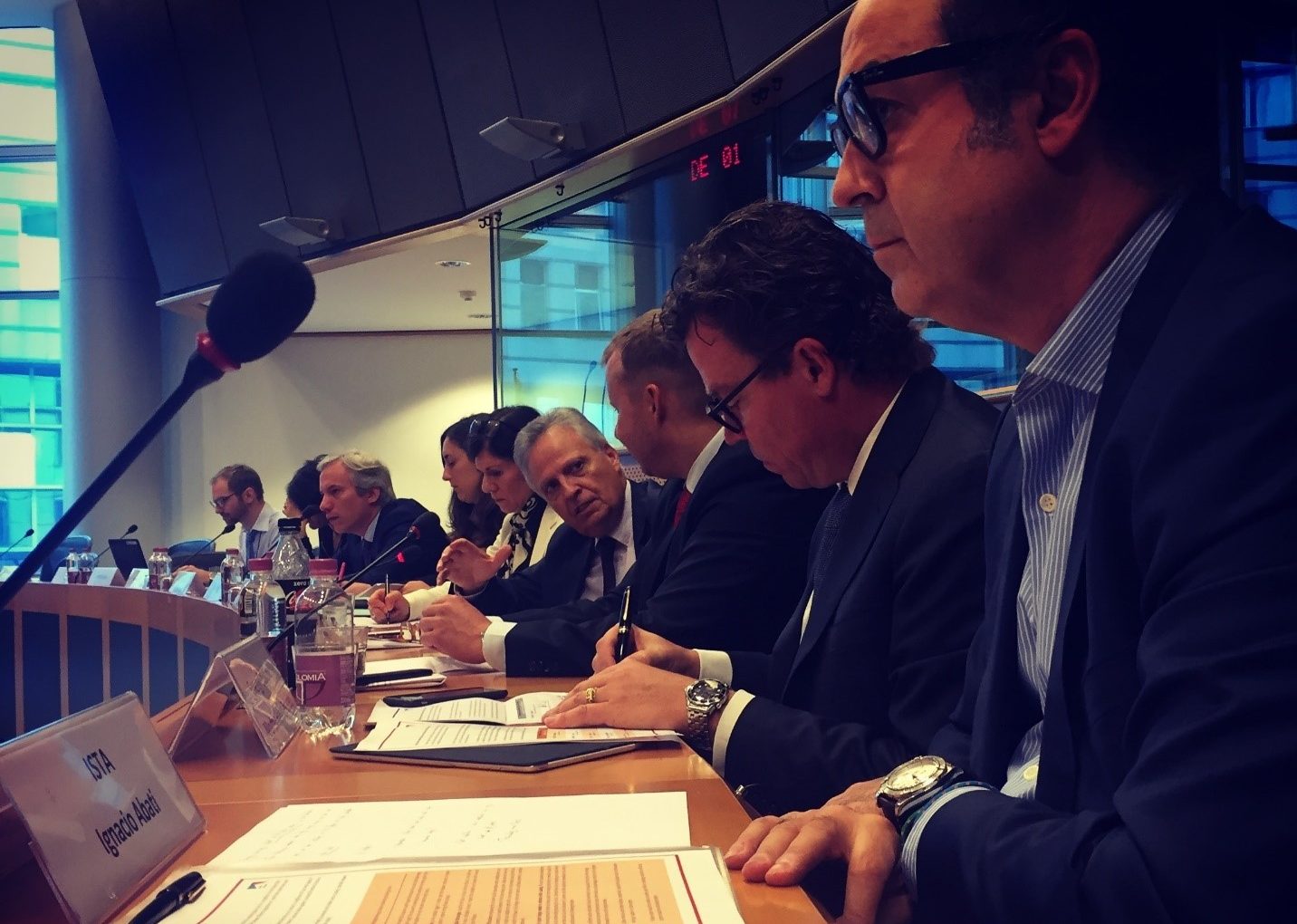September 26, the consumer was indeed at the center of policy-making as key representatives across the energy system, members of the European Parliament, and key policy-makers from the European Commission came together in incentivising the consumer to make choices that optimise the energy system.
Director General for Energy Mr. Ristori and Head of Unit for Retail Markets Ms. Anna Colucci from the European Commission added a long-awaited twist on how policy-makers view consumers, moving from incentivising consumers to work for the energy system; to allowing the energy system to work for consumers – because who would not like the economic and social opportunities of an optimised energy system?
We need energy consumers to act – for the first time [we] will shift [focus] – it requires new management of data – this will be a revolution – everything is interrelated and interconnected, said Mr. Ristori implying that consumers in general respond to cost reductions if enlightened on spendings – spending that could be much more transparent with smarter management of data.
Vice President and MEP Mr. Poche (S&D) echoed the need to enable consumers to make their own decision on energy needs – with the first step being a holistic approach to policy-making in fostering more independent households:
The future of energy policy is giving households choices which incentivize savings in costs and CO2, said Mr. Poche.
Advisory Board Member and rapporteur, CEO of Ista Spain, Mr. Abati outlined four pillars for energy savings:
- Information for people to know when and how much they consume is crucial to save energy
- Cost reductions as the terminology – they do not care about energy efficiency nor energy savings – they want low costs and tools with low costs
- Technologies should be provided to consumers [to get started at all]
- Legislation
Discussions established consensus on the grand potential of placing the consumer at the center of the transition, moving from passive consumers to active so-called ‘prosumers’ – a shift that should be driven by a set of principles:
- Transparency first
- Focus on cost reduction
- Cost-efficient use of digital technologies
- Financial enabling environments for industry – and for consumers
- Harvest low-hanging potential with ‘sector coupling renovation’ of the public sector
- Empower the consumer by self-consumption, by enabling them to become active customer
- Future-proof grid tariff structure including a fair system cost allocation
- New allocation of system charges/costs needed to enhance decarbonisation of all sectors including heating and transport
Advisory Board Member Ørsted put forward concrete energy solutions that can incentivise the consumer to make choices that optimise the energy system:
With an end to the overcapacity in the power supply, fair CO2 costs and developed grids, electricity prices will reach levels where renewable energy, including offshore wind, can soon be operated without subsidies. Meanwhile, before these conditions are reached, the further industrialisation requires technology specific support keeping build-out rate of offshore wind at around one turbine per day in Europe. Critical is a strong and reliable Governance Regulation as well as principles for support schemes design spelled out in the revised Renewable Energy Directive, Ørsted (DONG Energy).
Advisory Board Member Statoil put forward concrete energy solutions that can incentivise the consumer to make choices that optimise the energy system:
A European Energy Union that is just and benefits consumers and investors alike must be delivered through a market oriented approach where participants are free to compete and respond to credible price signals for emissions, for energy services and for energy commodities. In such a Union the removal of inconsistencies and barriers that undermines a step up in R&D spending, technology deployment and energy system investments should be a priority. To appropriately target energy efficiency improvements, the distribution of costs and benefits of agreed legislative measures must address social, health and climate change issues in complementary ways, Statoil.
Energy Solutions play out across national, sectorial and individual interests on twitter: @EnerSolutions
